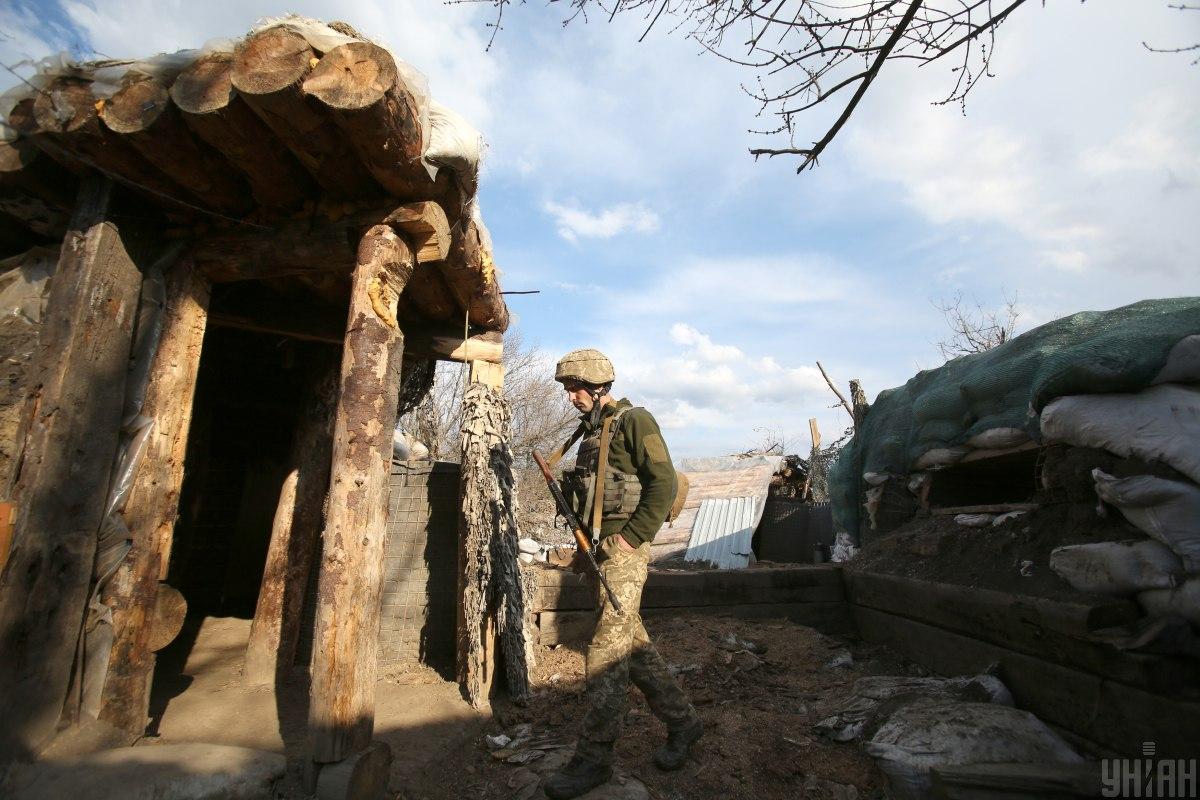
Ukrainian President Volodymyr Zelensky has enacted a decision taken by the National Security and Defense Council (NSDC) of Ukraine of June 2, 2021 "On some issues of enhancing the process of peaceful settlement of the situation in Donetsk and Luhansk regions."
Decree No. 226/2021 of June 2 has been posted on the president's website.
The NSDC secretary is entrusted with monitoring the implementation of the decision.
The decree comes into force on the day of its publication.
Read alsoZelensky: Russia withdraws only about 10,000 troops from border with UkraineAccording to the NSDC's decision, among other things, the Cabinet of Ministers is instructed to prepare, taking into account international experience, draft laws on the introduction of transitional justice in the temporarily occupied territories in Donetsk and Luhansk regions as an integral state policy for the peaceful settlement in these territories, overcoming the consequences of the armed conflict and achieving social reconciliation, and submit them in accordance with the established procedure for consideration by the Verkhovna Rada.
Within three months, the government shall ensure the introduction of amendments and an extension for the period up to 2023, inclusive, of the implementation period of the State Target Program for the restoration and development of peace in the eastern regions of Ukraine, approved by the resolution of the Cabinet of Ministers of December 13, 2017 (No. 1071).
Within three months, the Cabinet of Ministers shall ensure the launch of the state broadcasting system with an extensive infrastructure of state-run correspondent offices in Ukraine and beyond. The government, with the involvement of the SBU Security Service of Ukraine, shall also work out the issue of recalling network resources (IP-addresses) that are used by telecommunications operators (providers) located in the temporarily occupied territories of Ukraine in Donetsk and Luhansk regions or used in Russia's information aggression against Ukraine.
Read also"Major challenge": NSDC secretary on possible deployment of Russian troops in BelarusWithin six months, the government shall ensure the deployment of a nationwide digital multichannel TV network MX-7 based on the Concern of Radio Broadcasting, Radio Communication and Television as the operator of the state multiplex. It shall also ensure radio broadcasting in the medium-wave range, including with specially designed content, to cover the temporarily occupied territories in Donetsk and Luhansk regions with a signal coming from Ukrainian radio stations.
Throughout 2021, the Cabinet of Ministers shall complete the setup of crossing checkpoints to the temporarily occupied territories of Donetsk and Luhansk regions.
In addition, the government shall take steps to establish and properly fund a Center for documentation of human rights violations and damage caused by Russia's armed aggression.
The Ministry of Foreign Affairs is instructed to provide regular information to the international community (primarily the G7 states, the Lublin Triangle, as well as the EU, NATO, UN, OSCE, Council of Europe member states) about the social, humanitarian, and security situation in the temporarily occupied territories in Donetsk and Luhansk regions and Ukraine's performance toward the implementation of the Minsk Agreements, initiatives and measures by the Ukrainian side to intensify the process of peaceful settlement of the situation in certain areas of Donetsk and Luhansk regions.
Every six months, the Ministry of Internal Affairs shall inform the NSDC on the outcome of measures taken jointly with the SBU to maintain public safety and order, prevent destabilization of the crime situation in Donetsk and Luhansk regions, with the exception of non-controlled settlements.
The Commander-in-Chief of the Armed Forces of Ukraine, among other things, is instructed to complete within six months the implementation of measures to strengthen the protection and defense of potential enemy landing areas along the Ukrainian coast of the Black and Azov Seas, as well as critical infrastructure facilities in the area of implementation of measures to ensure national security and defense, repulse and deter Russia's armed aggression.

